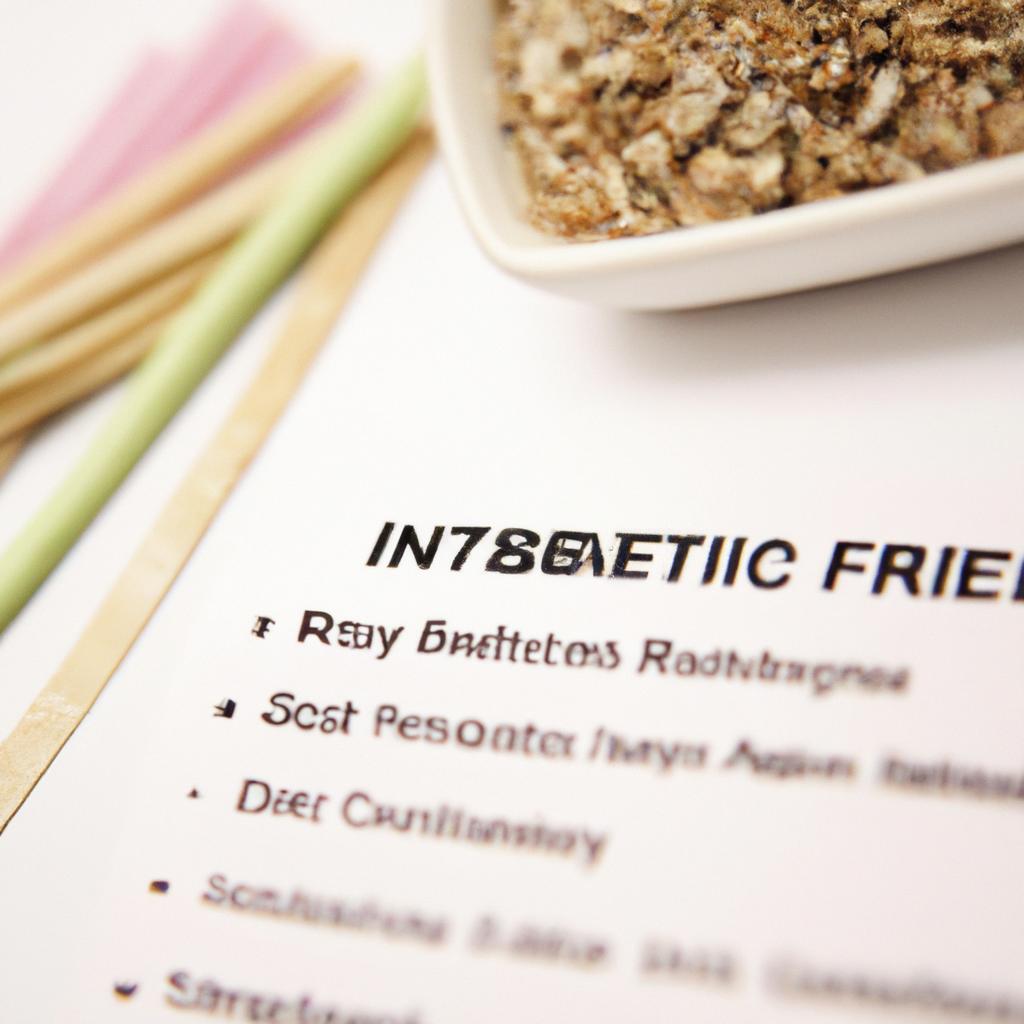**”The Role of Prebiotic Fiber in Sports Nutrition: How Gut Health Influences Athletic Performance and Recovery”**
# The Role of Prebiotic Fiber in Sports Nutrition: How Gut Health Influences Athletic Performance and Recovery
In the ever-evolving world of sports nutrition, the focus has traditionally been on macronutrients such as carbohydrates, proteins, and fats. However, an equally important player has emerged on the scene: prebiotic fiber. This overlooked component can significantly impact gut health, thereby influencing athletic performance and recovery. In this blog post, we’ll explore the role of prebiotic fiber in sports nutrition, how it contributes to optimal gut health, and provide nutrition tips and exercise advice that can help athletes harness its benefits.
## Understanding Prebiotic Fiber
### What Are Prebiotics?
Prebiotics are non-digestible fibers found in certain foods that promote the growth of beneficial gut bacteria. Unlike probiotics, which are live bacteria, prebiotics serve as food for these microorganisms, helping them thrive and maintain a balanced gut microbiome.
### The Gut-Brain-Axis and Athletic Performance
The gut microbiome is intricately linked to the brain through the gut-brain axis, influencing mood, cognition, and even motivation. A healthy gut can lead to improved focus and mental clarity during training and competition, while an imbalanced microbiome can result in fatigue and decreased performance.
## The Connection Between Gut Health and Athletic Performance
### Enhanced Nutrient Absorption
A well-functioning gut is crucial for nutrient absorption. Prebiotic fiber can improve the health of the gut lining, allowing for better uptake of essential vitamins and minerals that athletes need for energy and recovery. This means that not only does prebiotic fiber support gut health, but it also indirectly boosts athletic performance by ensuring that the body is adequately nourished.
### Reduced Inflammation
Athletes often experience inflammation as a result of rigorous training. A healthy gut microbiome can help modulate the body’s inflammatory response. Prebiotics have been shown to lower levels of systemic inflammation, which can speed up recovery times and improve overall performance.
## Nutrition Tips for Including Prebiotic Fiber
1. **Choose High-Fiber Foods**: Incorporate foods rich in prebiotic fiber into your diet. Options include chicory root, garlic, onions, asparagus, bananas, and whole grains like barley and oats.
2. **Mix with Probiotics**: Pair prebiotic-rich foods with probiotic sources such as yogurt, kefir, or fermented vegetables. This combination can enhance gut health and maximize performance benefits.
3. **Gradually Increase Fiber Intake**: If you’re not used to consuming high amounts of fiber, increase your intake gradually to prevent gastrointestinal discomfort. A sudden spike in fiber could lead to bloating and gas, which can detract from your performance.
4. **Stay Hydrated**: Fiber works best when paired with adequate hydration. Ensure you’re drinking enough fluids to support digestive health and nutrient absorption.
## Exercise Advice for Optimizing Gut Health
1. **Timing Matters**: Consider the timing of your meals. Consuming prebiotic-rich foods a few hours before training can provide your gut with the necessary fuel to promote better performance.
2. **Post-Workout Recovery**: After an intense workout, include a balanced meal with prebiotic fiber and protein to support gut health and muscle recovery. A smoothie with banana, spinach, and yogurt can be an excellent choice.
3. **Listen to Your Body**: Pay attention to how your body responds to different foods. Some athletes may find that they need to adjust their fiber intake based on their training intensity and duration.
## Health Benefits of Prebiotic Fiber
### Improved Immune Function
A healthy gut microbiome plays a vital role in immune function. By promoting the growth of beneficial bacteria, prebiotic fiber can enhance the body’s defenses against illnesses, keeping athletes in peak condition.
### Mood and Mental Health
Gut health is closely linked to mental well-being. A balanced microbiome can contribute to better moods and reduced anxiety, which are crucial for maintaining motivation and focus during training and competition.
### Long-Term Health
Incorporating prebiotic fiber into your diet has long-term health benefits, such as reduced risk of chronic diseases, improved heart health, and enhanced gastrointestinal function. This can lead to a longer and more fulfilling athletic career.
## Conclusion
Incorporating prebiotic fiber into sports nutrition is not just a trend; it’s a crucial strategy for enhancing athletic performance and facilitating recovery. By improving gut health, athletes can experience better nutrient absorption, reduced inflammation, and improved mental clarity. With practical nutrition tips and exercise advice, athletes can harness the power of prebiotic fiber to support their performance goals. Prioritizing gut health through prebiotic fiber is a game-changer for those looking to excel in their athletic endeavors.















Post Comment